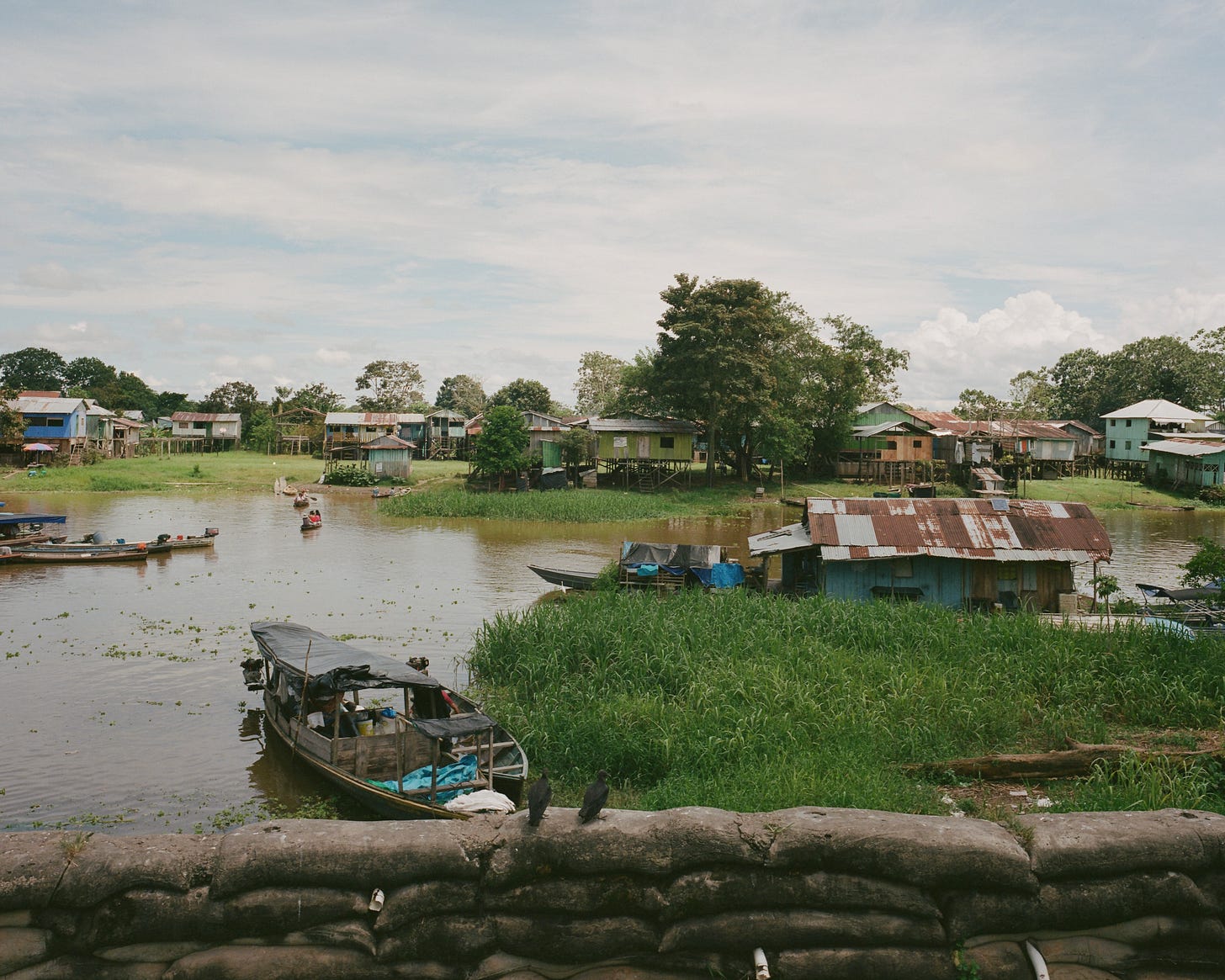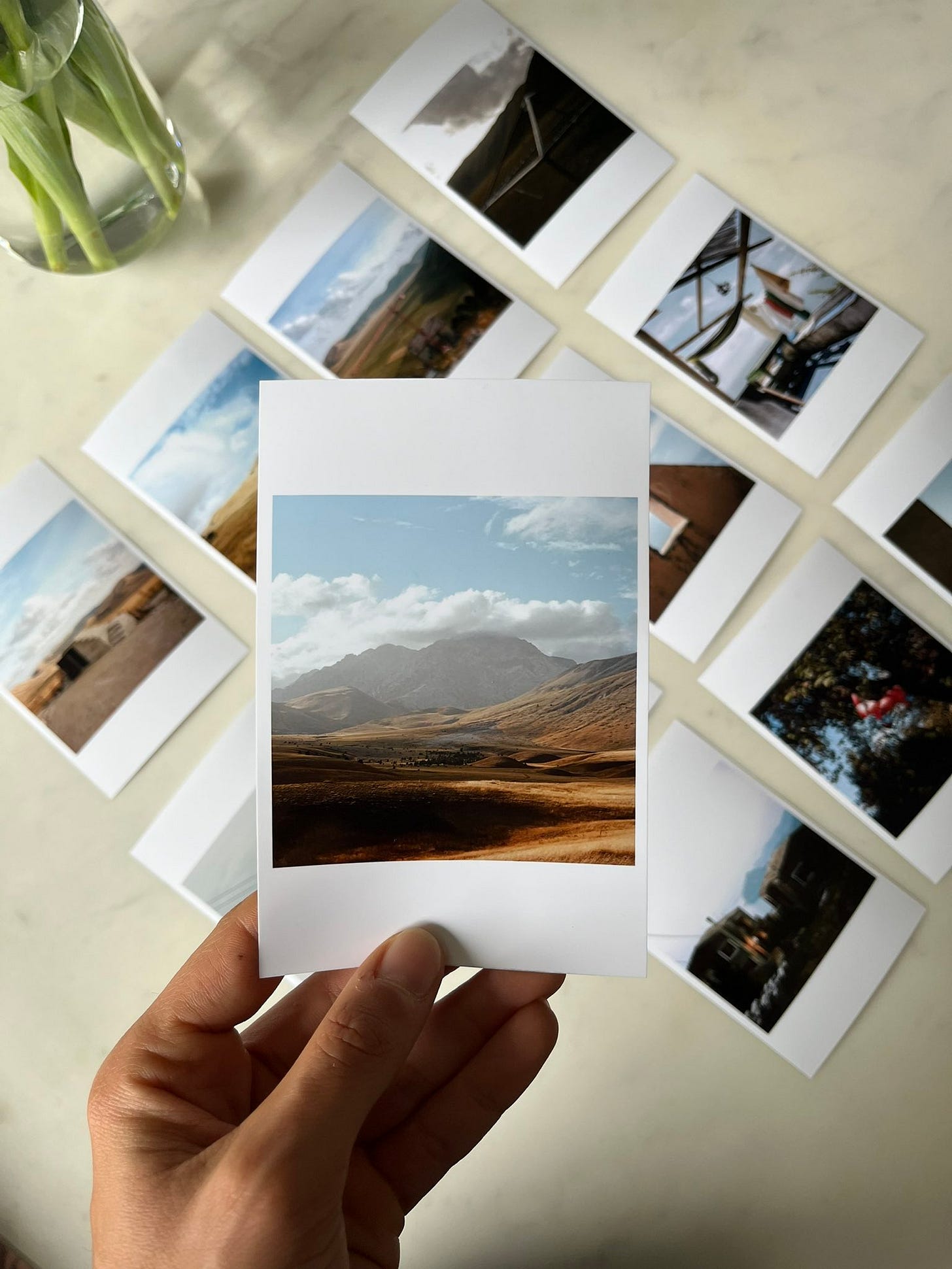Episode #3: Our Language, Our Identity
On local languages, melodies from the Amazonas, and something for you
Dear friend, thank you for being part of Project Home. I still can’t believe the different countries from where these episodes are read from. As promised, I’m going to send you a copy of one of the images of the project. Scroll to the end to know how to get yours.
On Local Languages
As a person who grew up without knowing that Sicilian and Italian were two different languages, I’m always inspired when I encounter people who can speak more than one. It’s beautiful to see how individuals open up when speaking the same idioma. You just become friends without even knowing it.
As I travel and meet different communities, I am constantly reminded of the power of language. It’s not just a means of communication but a huge piece of culture, history, and identity.
I recently visited a small community in the heart of the Amazon Rainforest, between Colombia and Peru, that spoke their native language, Ticuna, alongside Spanish. The elders were the ones keeping the traditional knowledge, passing down songs and wisdom. One afternoon, I sat with them, and while they were cooking some food for us, they started to tell stories. The elder of the village, a kind woman named Anahi, spoke with such passion and grace that even without understanding a word, I felt the weight and beauty of her tales.
Anahi explained that their language was more than words; it was the essence of their identity.
“Our language carries the soul of our people,” she said. “When we speak, we connect with our ancestors and the spirits of the forest.”
Yet, the younger generation, more fluent in Spanish, often struggled to fully grasp the depth of their native tongue. It made me think about how our language shapes our identity and how losing it can mean losing a part of ourselves.
Abuelo Y saw how interested I was in listening to them, so he offered to play something for us:
As I left the community and looked back, I reflected on what I had experienced. Research shows that every 40 days a language disappears. This deeply resonated with me. I may know 80% of the words in Sicilian, while it was my grandparents' primary language.
This loss of linguistic heritage happens almost everywhere. In Salento, Puglia, a lovely region you may want to visit soon, elders speak Grico, a mix of ancient Greek, Byzantine, and Italian. Here the greatest knowledge is preserved either by them or by local songs, two pieces that keep Grico alive.
While speaking a common language that lets me communicate with you so easily is important, I believe that preserving our native one is essential to keeping our true selves alive.
So next time you’re home, proudly speak your own language, the world heritage will thank you.
Nama caputu?
Something For You
I’m going to gift you with a copy of the images you’re seeing in these episodes. I’ll be sending them from Italy, wherever in the world you are. If you’d like to get yours, please fill out the small form you see when clicking this button.
Until the next one,
Much love.
F







The landscape of the first image resembles my hometown Nagaon, Assam so much !